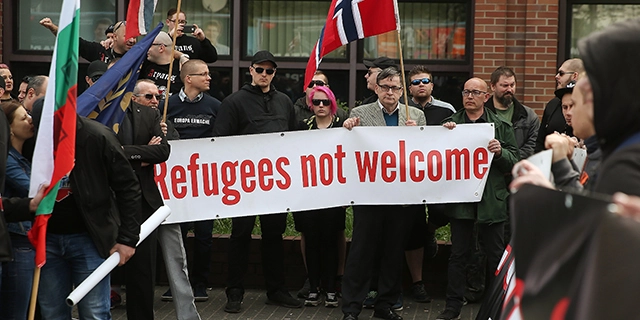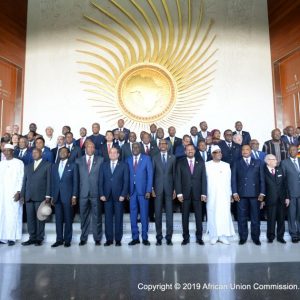As the far-right Sweden Democrats party won 20 percent of the votes in Sweden’s general election this September, many predict the rise of the nationalism and anti-immigration sentiment throughout the country—even in places previously considered safe havens for immigrants. Nativist parties such as Sweden Democrats, who perceive immigrants as a threat to their state’s national identity, are becoming more common across Europe.
Similarly, Giorgia Meloni, Italy’s soon-to-be Prime Minister aims to strengthen border restrictions to one of the prime destinations of refugees and undocumented immigrants. Meloni is using the anti-immigration sentiment as a way to mobilize support. The influx of refugees in the past few years received a backlash that made it possible for Meloni, who holds anti-immigration views, to rise to power. Meloni has previously stated that incoming immigrants dilute Italy’s ethnic identity. Similar sentiments are expressed in Switzerland and Austria that top the charts with their anti-immigration and nationalistic tendencies.
This anti-immigration sentiment in Europe arises from the perception of immigrants as a threat. First, the belief that immigrants lower wages and limit job options for native workers constitutes the economic threat of the immigrants. In addition, the burden that immigrants bring to the welfare system is used to paint immigrants as a financial burden to the country.
But while the perceived financial and economic threats of immigrants are significant, the main driver of the anti-immigration movement in Europe is the symbolic threat that immigrants present to the national culture and values. Oftentimes, Muslim values are seen as antagonistic to Western values. For instance, with 5 million strong Muslim minority population, half of whom are immigrants, France is trying to create homogenization by emphasizing the national public culture. France tends to be proud of its Republican tradition which is mobilized to underscore French cultural superiority. French Interior Minister Claude Guéant stressed this notion when he proclaimed that “all cultures are not of equal value” in 2012. In 2021, the French government severely limited the option of parents to home school their children arguing that children should be “educated about their citizenship, from having access to culture, to our history, to our values . . . that lies at the heart of the republican school system.”
However, the notion of French cultural superiority does not only rear its head through the educational curriculum; it is also present in the denial of lifestyle choices that do not adhere with the French public culture. Many French school cafeterias do not provide pork-free options to Muslim children even though Islam prohibits pork consumption. In 2015, L’Essonne was one of the many towns that removed the pork-free options from cafeteria menus. The argument made in favor of this decision was that it preserves French secularism that is so deeply rooted in the French Republican tradition. In reality, culture is used as an instrument of exclusion that avoids the explicit racial exclusions.
A Berkeley student, Cansin Rodoplu, attended a French school in Turkey, where she observed the treatment of non-white immigrants in French cultural environments. “The French State is obsessed with the idea of maintaining French culture not only across their State, but also through French schools all around the world,” Cansin begins. Regarding the effect these schools have on Turkish culture, she says, “These schools try to establish French culture as a superior culture in their host countries. The way these schools are designed is that elite people, or the upper-middle class of the nationals will also get into these schools.”
Rodoplu offers an example of how French ideals were maintained in her school: “Every day, I would see this girl take off her hijab, a plain headscarf that doesn’t cover her whole face, before going into school. If she decided to wear a headscarf, she would not receive an education. These are the rules that they still enforce in a majority Muslim country such as Turkey.” While acknowledging that Turkish people choose to go to French schools, Muslim immigrants and French citizens do not have that luxury: “If you choose to wear a hijab over your education, then you don’t receive an education in France.”
While France might emphasize the importance of adhering to the national culture rather than opposing immigration in itself, some European countries oppose increasing diversity as a whole. A report by Pew Research reveals the opposition of European countries to the growing diversity. 78% of Italian respondents agreed that the diversity of races, ethnicities, and nationalities is not a positive thing for their country. None of the European countries had a majority see diversity positively. These views on the value of diversity strongly correlated with respondents’ political affiliation. People with politically right views were more likely to view diversity as worsening their life standard. This ideological split in immigration views explains the rise of the right-wing parties with the growing anti-immigration sentiment. The fear of being culturally and economically displaced by immigrants allowed the far-right parties to gain popularity in Europe.
Notably, the European anti-immigration backlash is primarily aimed at refugees, while high-skilled immigrants evade the prejudice and discrimination. Many European countries face labor shortages and the high-skilled immigrants are seen as a contribution to countries’ economies. While there is a significant amount of mobility within the European Union, the EU countries also attract migrant workers from outside the EU. The “brain drain,” or the leaving of highly-skilled workers from a country, is a significant issue in countries such as Portugal, Spain and Greece. To fill the gaps in the labor market, Portugal has created a D3 residence visa specifically designed for high-skilled professionals. This visa not only allows immigrants to work in the USA, but it also gives them the opportunity to reside in Portugal with very similar rights to Portuguese citizens such as access to the public health system. After securing an employment contract, immigrants may apply for a visa. After working for only 5 years, these high-skilled professionals are eligible to apply for Portuguese citizenship.
In contrast, countries such as the U.S. that have a robust labor market make obtaining a high-skilled work visa extremely difficult. In 2022, 308,613 immigrants applied for 87,500 work visas. The applicants for the visa were put into a lottery system in which an individual applicant only had a 28 percent chance of obtaining the work visa. The disparity in the need for high-skilled workers in the U.S. and many European countries contributes to the significant difference in the restrictions on high-skilled immigration.
While many European countries strive to attract high-skilled workers, they bar the immigrants from naturalizing. The citizenship requirements tend to be very hard to satisfy since these ethnically homogenous countries believe they should protect the cultural values of their country from being undermined by immigrants. For instance, Switzerland requires immigrants to have resided in the country for 12 years before becoming eligible for citizenship. Since Switzerland does not have birthright citizenship, oftentimes second and third-generation immigrants still do not hold the Swiss passport. Swiss refer to these second-generation immigrants as secondos, eternalizing their immigrant identity. These immigrants face the issue of disenfranchisement. Shalini Randeria, a notable anthropologist and an Indian immigrant to the European Union, brought this issue to attention by highlighting how she is taxed in three European countries, yet she can vote in none. An absentee ballot is not available in her own country, so she is left voiceless and unrepresented. In a talk on October 12, 2022 at UC Berkeley, Randeria refers to immigrants as “political subjects who are residents, but not citizens.”
The ongoing anti-migration sentiment in Europe is rooted in the perceived cultural threat. Immigrants are viewed as unassimilable and their cultures as incompatible with Western norms and ideals. Western values and cultures remain a tool for othering and excluding immigrants. To change the debate around immigration and perceive immigrants as positively contributing to the host countries, we should direct our attention to researching and abolishing the exclusionary practices directed towards immigrants in the name of preserving the nation’s culture.
Featured Image Source: Pew Research Center






Comments are closed.